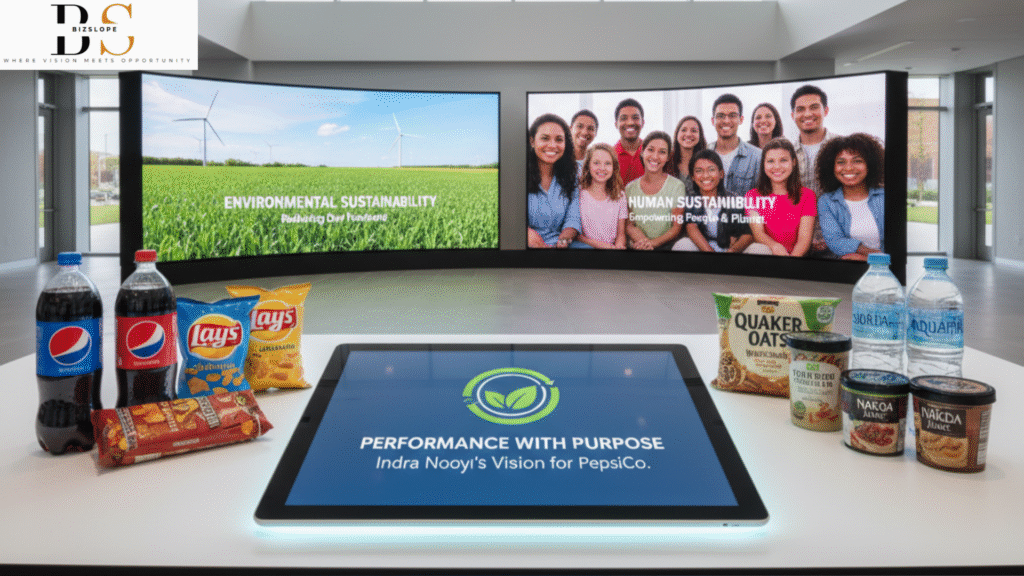Indra Nooyi’s name is synonymous with transformative leadership, particularly her groundbreaking tenure as CEO of PepsiCo. Her story is a compelling blueprint for how a leader can not only navigate a global corporation through challenging times but also fundamentally redefine its purpose, proving that profitability and social responsibility are not mutually exclusive but deeply interconnected. Her vision, encapsulated in “Performance with Purpose,” became a benchmark for corporate leadership in the 21st century.
The Helm of a Giant: Navigating a Shifting Landscape
When Indra Nooyi took the helm as CEO of PepsiCo in 2006, the global food and beverage industry was at a critical juncture. For decades, the industry’s focus had largely been on maximizing shareholder value through aggressive marketing, cost-cutting, and expanding market share with often less-than-healthy products. However, the world was changing. A growing awareness of health and wellness, coupled with increasing concerns about environmental sustainability and social equity, began to challenge the traditional “profit-at-all-costs” mindset.
Consumers were becoming more discerning, demanding healthier options and greater transparency from the brands they consumed. Regulatory bodies were also beginning to scrutinize the impact of processed foods and beverages on public health. In this climate, a company like PepsiCo, with its vast portfolio of snack foods and sugary drinks, faced significant pressure to adapt or risk obsolescence. The challenge for Nooyi was immense: how to steer a multinational giant with ingrained practices toward a more sustainable future without alienating shareholders or sacrificing financial performance.
“Performance with Purpose”: A Vision for a New Era
Indra Nooyi’s genius lay in her ability to foresee these seismic shifts and articulate a bold, comprehensive strategy to address them. Her transformative vision, which she coined “Performance with Purpose,” was far more than a marketing slogan; it was a fundamental recalibration of PepsiCo’s strategic compass. She saw an unparalleled opportunity to not only grow the company but also to leverage its immense scale and resources to do good for society and the planet.
“Performance with Purpose” was built on three interconnected pillars:
- Human Sustainability: Healthier Products: Nooyi initiated a significant overhaul of PepsiCo’s product portfolio. This meant not only reducing sugar, salt, and fat in existing popular brands but also investing heavily in research and development to create entirely new, healthier product lines. She pushed for greater transparency in labeling and actively sought to acquire companies specializing in nutritious foods and beverages. This was a direct response to the global health crisis and an acknowledgment of changing consumer preferences.
- Environmental Sustainability: A Smaller Footprint: Recognizing the environmental impact of a global manufacturing and distribution operation, Nooyi committed PepsiCo to reducing its environmental footprint. This included ambitious targets for water conservation, energy efficiency, waste reduction, and sustainable sourcing of raw materials. She understood that long-term business viability was inextricably linked to the health of the planet.
- Talent Sustainability: Empowering Employees and Communities: The third pillar focused on social responsibility – creating a diverse and inclusive workplace, fostering employee development, and giving back to the communities where PepsiCo operated. Nooyi was a staunch advocate for diversity, particularly for women in leadership, and ensured that PepsiCo’s global reach was used to create positive social and economic impact.
This holistic approach challenged the prevailing corporate wisdom that purpose was a luxury, secondary to profit. Nooyi argued that purpose drove profit, creating long-term value by building trust with consumers, attracting top talent, and ensuring operational resilience.
Overcoming Skepticism and Delivering Impact
Nooyi’s bold strategy was not met without resistance. Initially, many investors and market analysts expressed skepticism. The conventional wisdom dictated that focusing on health and environmental initiatives would be a drag on the bottom line, diluting profits in favor of perceived “soft” metrics. Some argued that PepsiCo should stick to what it did best – selling indulgent snacks and sugary drinks – and leave social responsibility to governments and NGOs.
However, Nooyi remained steadfast. She eloquently articulated her vision, emphasizing that these initiatives were not mere philanthropic endeavors but integral components of a robust, future-proof business strategy. She demonstrated that investing in healthier products opened new market segments, sustainable practices led to operational efficiencies and cost savings, and empowering employees fostered innovation and loyalty.
The impact of “Performance with Purpose” under her leadership was undeniable. During her 12-year tenure as CEO, PepsiCo’s revenue grew significantly, and the company’s market capitalization increased by tens of billions of dollars. More importantly, she dramatically shifted the company’s portfolio towards healthier products, increased its sustainability ratings, and built a more inclusive and engaged workforce. She proved the naysayers wrong, establishing a new paradigm for corporate success where financial performance and positive societal impact went hand-in-hand.
A Legacy of Redefined Leadership
Indra Nooyi’s story is a powerful reminder that true leadership requires not only strategic acumen but also courage, conviction, and a deep-seated commitment to a purpose beyond profit. She transformed PepsiCo from a traditional food and beverage giant into a leader in sustainable and responsible business practices. Her legacy has inspired a new generation of business leaders to consider their broader impact on the world, demonstrating that companies have a vital role to play in addressing global challenges.
Nooyi’s “Performance with Purpose” stands as a testament to the idea that businesses can, and should, be a force for good, capable of generating both economic prosperity and meaningful societal progress. Her leadership journey at PepsiCo remains an enduring blueprint for how to lead with purpose, redefine an industry, and build a legacy that transcends quarterly earnings reports.



